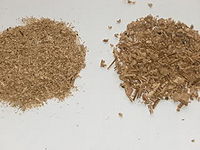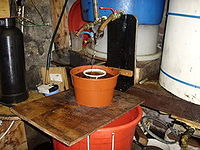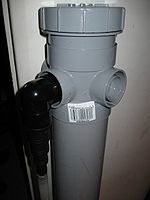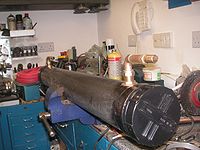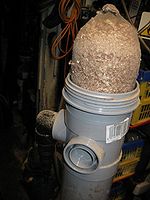Dry washing
An alternative to Water Washing is dry washing, so called because no water is used in the removal of soaps from the biodiesel.
This is considered a "final polish" stage, after the majority of soap has been allowed to settle out naturally following Demething.
Contents
Ion Exchange Resin
Because the ASTM D6751 standard for biodiesel has a greater tolerance for Free Fatty Acid content than soap, an ion exchange resin can be employed to convert any remaining soap in the fuel into Free Fatty Acids.
This is, however, to the detriment of the acid number of the final product.
Hardwood
If the biodiesel is passed through a tower packed with hardwood shavings, the soaps becomes trapped within the course structure of the shavings and sawdust. Any trace Methanol is also absorbed by the medium.
Typically, a 10 litre tower should have biodiesel pumped or gravity fed through it, bottom to top, at a rate of 3 litres per minute. If the fuel is well settled before filtering,remove the majority of soap, 10 litres of medium should be capable of filtering 1000 litres of biodiesel.
When a tower has been freshly repacked with shavings, at first the flow of biodiesel will be contaminated with sawdust and possibly a small amount of resin. So initially, prime the tower by recirculating a small amount of biodiesel until the flow runs clear (the tower trapping any sawdust that escaped). The first batch passed through the tower should be settled before use, in case there are any wood resins present (these will drop out).
Do not use softwood wood shavings as these will be rich in resins.
- Home made hardwood towers
